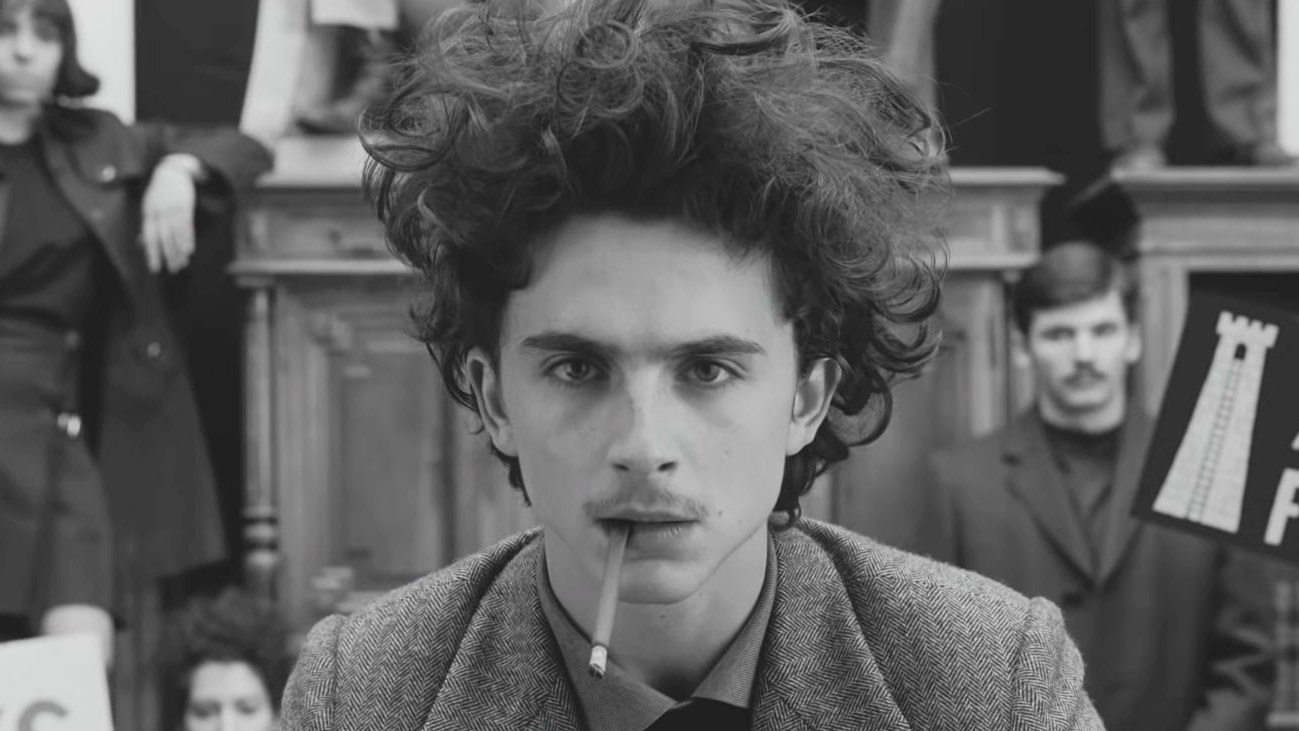As a long time, passionate lover of Wes Anderson and his films in all their stylised glory, The French Dispatch somehow underwhelmed and overwhelmed me. I am still yet to distinguish between the two. From seeing Fantastic Mr. Fox as a child, and then proclaiming The Grand Budapest Hotel as my favourite film since its release, I have loved everything about Wes Anderson films: the visually pleasing colour pallets; the symmetrical cinematography; the brilliant, humorous, blunt dialogue of hilarious quirky characters and the famous comical chase scenes. It has always left me inspired and amazed, at Anderson’s storytelling abilities. The French Dispatch is a masterpiece, full of brilliant actors including Elizabeth Moss, Timothee Chalamet, Frances McDormand, Adrian Brody, Tilda Swinton and too many more to list. As well as the cast, this film includes new aspects to Wes Anderson’s film making style, including digitally animated scenes, diorama style scenes and the switching between black and white and coloured scenes. While all these aspects satisfied all my hopes, dreams and expectations of something Anderson would provide, something about this film left me disappointed, confused and ultimately lacking the desire to watch the movie a second time.
The film is a collection of 3 stories, all of which are stories written for the magazine – ‘The French Dispatch’. As I flipped my way through the replica of the magazine handed to me at the entrance to the Lido Cinema, I read that this film was inspired by Anderson’s love for the New Yorker, for his love for print. I was able to appreciate that while watching the film, and maybe it’s the bias I hold for his films like The Royal Tenenbaums, Rushmore, and even his co-writing for the film The Squid and the Whale, but the depth and honest presentation of the characters within these films were sorely lacking in The French Dispatch. So much so, that every character blurred across the screen and I found it impossible to even get close to understanding their stories.
Even before the first of the three stories, we are introduced to the cycling reporter Herbsaint Sazerac played by Owen Wilson. We are given a bike tour around Ennui, introduced to the town, the heart of the magazine, the setting place for the stories to come and many of the workers at The French Dispatch. We are also given a comparison between the past and the future of the town, switching colour themes. It took me a while to put together a pattern for the changing of colour. I thought maybe it was representing the past and the future, in a Greta Gerwig sort of way, or maybe colour represented love. It wasn’t clear to me until I researched it after. The colour was mainly there to emphasise a certain thing, for instance in the second story, the only time the film wasn’t in black and white was when the paintings were displayed, to highlight the art as the main focus of the story.
I understand the concept of the film, that it is supposed to be a visualisation of stories within a magazine, that you aren’t supposed to understand the characters in depth, but rather their stories. I understand that the whirlwind they developed was supposed to be fun and energetic and comedic and though yes, it was, and I found myself constantly laughing and enjoying the cackles from the far end of the cinema, I just felt it wasn’t what I expected. It was unexpected, different and new. Maybe that’s something to be appreciated rather than critiqued. I went in expecting to understand a small few characters, really get to know them, love them, hate them, feel sorry for them. Yet instead I was introduced to hundreds of characters, all whom I know barely anything about. A character would die and I’d have no time to mourn, two characters would make up and I’d have no time to feel heart warmed, a character would be rejected and all I could do was move on and focus on the next story.
I feel I need to make it once more clear my great love for Wes Anderson and his plethora of brilliant films, because The French Dispatch is a film only for people that can handle the complicated, ridiculous, extravagance of Wes Anderson’s filmmaking. The overwhelming, sickening aesthetic of endless symmetry, pastel, coherent colour pallets and facades, and well-dressed characters. I thought I would never criticize the director I love most, yet I can’t help but say that The French Dispatch has not impressed me like his other works have.


